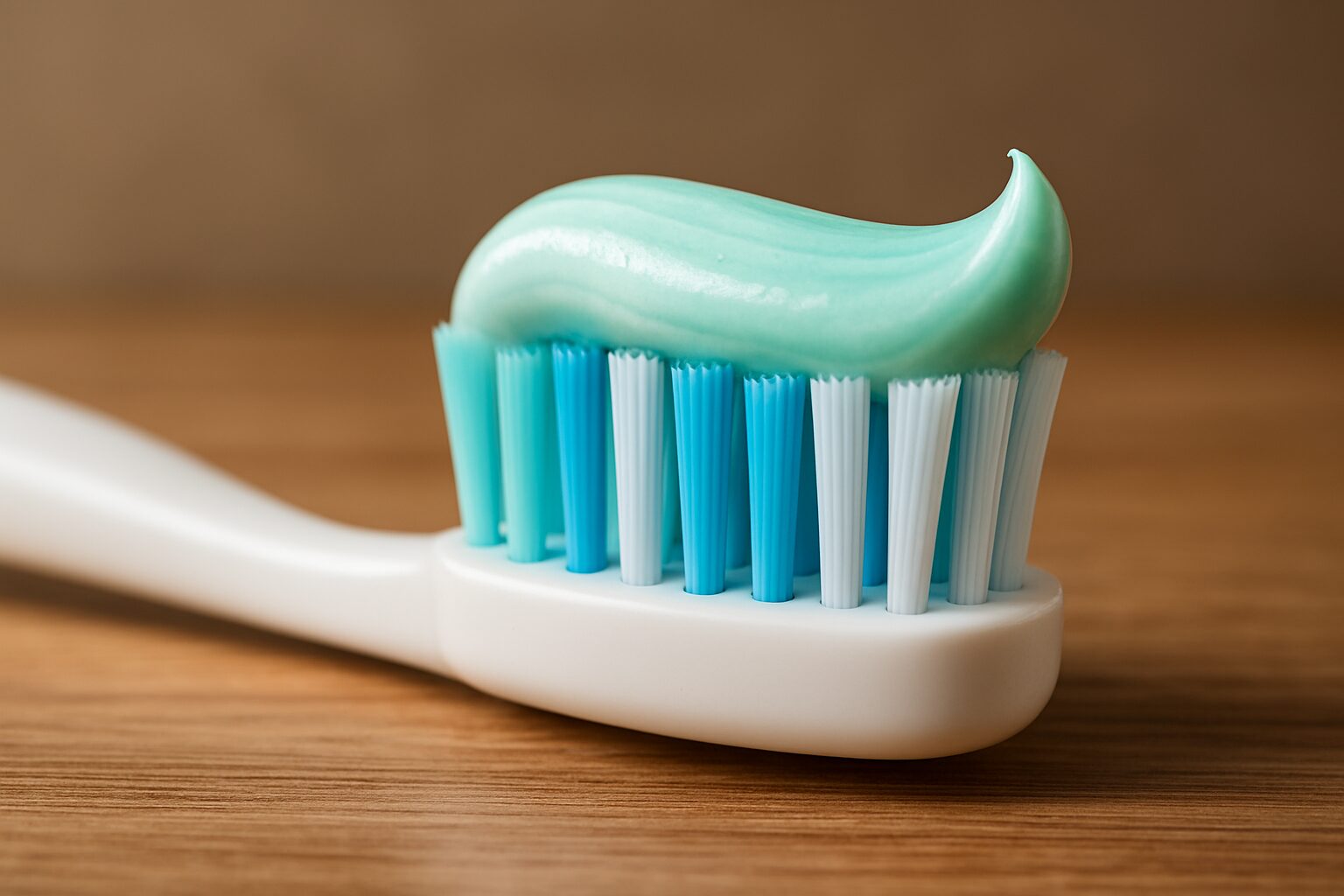Understanding Toothpaste Safety
What’s in Your Toothpaste? A Closer Look at Safety and FDA Oversight
Explore the latest findings on toothpaste safety, uncovering the presence of heavy metals and what it means for your family’s health.
Investigating Toothpaste Safety
Recent investigations have shed light on the presence of heavy metals in popular toothpaste brands. Lead Safe Mama’s study revealed that many toothpastes, including those marketed as natural or for children, contain trace amounts of lead, arsenic, mercury, and cadmium. These findings raise concerns, especially for vulnerable groups like children and pregnant women. At Small Dental, we prioritize informing our patients about these risks and guiding them towards safer choices.
Recent headlines have raised questions about the safety of everyday products—including something most of us use at least twice a day: toothpaste. A new investigation found that many popular toothpaste brands, including some marketed for children and as “natural,” may contain trace amounts of lead, arsenic, mercury, and cadmium.
At Small Dental, we believe in keeping our patients informed, not alarmed. Here’s what you need to know about the findings, what ingredients are involved, how toothpaste is regulated, and how to make the best choices for your family’s health.
What Did the Research Find?
An independent study tested 51 toothpaste brands and found:
- 90% contained lead
- 65% had arsenic
- Nearly 50% had mercury
- About 1 in 3 had cadmium
These are all heavy metals that, in high enough concentrations, can pose health risks. They are especially concerning for children, pregnant women, and individuals with chronic health conditions.
Some well-known brands included in the testing were: Crest, Sensodyne, Tom’s of Maine, Dr Bronner’s, Davids, and Dr Jen.
Notably, Dr. Brown’s Baby Toothpaste was one of the few brands that showed no detectable levels of heavy metals.
Are These Levels Dangerous?
Most of the toothpastes tested did not exceed the FDA’s current legal limits:
- Fluoride toothpastes: 20,000 ppb of lead
- Fluoride-free toothpastes: 10,000 ppb of lead
However, several did exceed Washington state’s new limit of 1,000 ppb, and public health experts have long criticized the FDA’s federal thresholds as outdated and not protective enough.
In fact, many pediatricians and toxicologists argue that no level of lead exposure is safe, especially for children.
What Ingredients Are Linked to Contamination?
The contamination appears to stem from naturally sourced ingredients that aren’t always purified or tested for trace metals:
- Bentonite clay – used as a cleaning agent
- Hydroxyapatite – often derived from animal bone
- Calcium carbonate – used to polish teeth and remove stains
Toothpastes containing these ingredients were more likely to test positive for heavy metals.
Heavy Metals in Toothpaste: Key Findings
An independent study tested 51 toothpaste brands, uncovering significant findings regarding heavy metal content.
Lead Presence
90% of tested toothpaste brands contained lead, raising significant health concerns.
Arsenic and Mercury Levels
65% of brands had arsenic, and nearly 50% contained mercury, highlighting the need for consumer awareness.
Understanding Contaminants
Ingredients of Concern
Bentonite clay, Hydroxyapatite, Calcium carbonate.These ingredients, while natural, underscore the importance of rigorous testing to ensure safety.
Understanding the sources of the contaminants is crucial for making informed choices. Bentonite clay is a popular ingredient due to its ability to bind toxins, yet it can introduce lead if not sourced carefully. Hydroxyapatite, valued for its re-mineralizing properties, can carry impurities from its natural sources. Calcium carbonate, a common abrasive, may contain trace metals if not adequately refined. Awareness of these potential contaminants helps consumers choose safer products for their families.
Does the FDA Regulate Toothpaste?
Yes—but not as strictly as many assume.
- Toothpaste is classified as an over-the-counter drug if it contains fluoride, and a cosmetic if it doesn’t.
- The FDA does not require manufacturers to test for heavy metals unless they exceed extremely high thresholds.
- Ingredients like clay, calcium carbonate, or hydroxyapatite may come from natural sources that are not routinely tested for contaminants.
That means many toothpastes on store shelves are perfectly legal—even if they contain trace amounts of substances that some states or countries would not permit.
Regulatory Insights
FDA's Role in Toothpaste Safety
The FDA classifies toothpaste as either an over-the-counter drug or a cosmetic, depending on its fluoride content. This classification affects the level of regulatory scrutiny. Fluoride toothpastes are subject to more stringent regulations, while non-fluoride variants are treated as cosmetics, with less oversight. The FDA does not mandate testing for heavy metals unless they exceed high thresholds, which means many products on the market may contain trace contaminants legally. This regulatory framework highlights the importance of consumer vigilance and informed choices.
What Should You Do?
We don’t want to cause unnecessary concern—but we do encourage awareness.
Here are a few simple tips:
- Check ingredient labels. Look for toothpastes free of bentonite clay, hydroxyapatite, and calcium carbonate if you’re concerned.
- Choose brands that test for purity. Some natural and baby toothpaste brands post third-party testing results.
- Ask your dentist. We’re happy to recommend safe, effective products for adults and children.
Small Dental’s Commitment to Your Health
Your oral health is about more than just clean teeth—it’s about your overall wellbeing.
At Small Dental, we keep up with emerging research and only recommend products we trust for our own families. If you’re ever unsure about a toothpaste, feel free to bring it in to your next appointment. We’re here to help you make informed choices with confidence.
Questions about your oral care products? Schedule an appointment or give us a call—we’re here to help!
Your Oral Health Matters
At Small Dental, we prioritize your health and peace of mind. If you have questions about the safety of your toothpaste or other oral care products, we encourage you to reach out. Our team is here to provide expert advice and recommendations tailored to your needs. Schedule an appointment today to discuss your concerns and explore safe, effective dental care options. Your smile deserves the best, and we’re committed to helping you achieve it.


